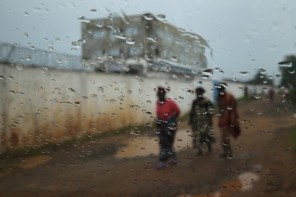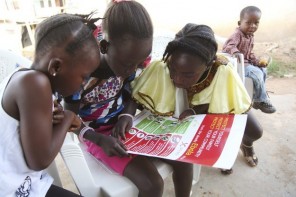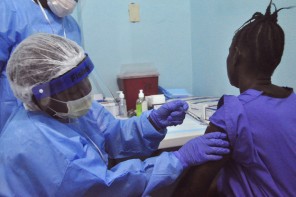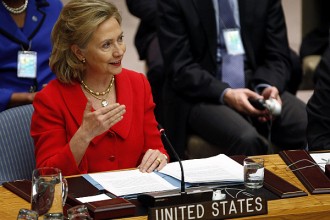Oh, so many apologies.
-
* First, to my few but devoted commenters–commentors? how is it spelled? this new internet age!–whose wonderful thoughts I’ve let languish in the “awaiting approval” pipeline. Sorry about that; it’s been a bit crazy here, and I didn’t want to click in and out until I could really engage.
So, here I am, ready for you. Which is by no means to assume that you are still there.
- * Second, an apology on apologies: My post on Canada’s truth and reconciliation commission (TRC) elicited the ire of one reader (whom I don’t know), who vigorously and quite rightly nudged me to correct my assumption that there’s no reparations involved in the Canadian TRC. I had assumed–wrongly and stupidly–that if there were a reparations scheme, the BBC would’ve reported it. I’d been doing so much of my own reporting on truth and reconciliation measures, and so much work at grad school before that, and reparations have never not come up in those conversations, so I figured it would be part and parcel of any story on a TRC. (Though a bit of sympathy to the BBC: I had 4,000 words over three days to deal with Sierra Leone, and I still had trouble getting a graph about reparations in.)
My Astute Reader is not right about the amount–it’s $2 billion, according to the International Center for Transitional Justice, and not $4.9 billion as s/he asserts–but is right about the fact that it’s part of the package. In fact, the ICTJ says reparations and the TRC were negotiated at the same time, which is pretty remarkable: So often, governments fear TRCs because of reparations. ‘Open an official truth-telling process,’ the logic goes, ‘and people will eventually ask you for money for the suffering you’ve given them space to talk about.’ It’s been a problem smart people in transitional justice have been working on for a long time. So this Canadian commission is good news on that front. (Quick note, just to temper this a bit: A 2003 article in the journal Comparative Education says that more than 9,000 lawsuits had been filed against the Canadian government in a bid to get reparations–and that was just in 2003. So the reparations fight was not a short, quick battle.)
What makes me sad about all this is that the woman I met in Montreal in October 2007, who had been through the residential school system, didn’t know anything about it. ICTJ says the agreement was negotiated in 2006 and the payments started in 2007; but when I met her at the Global Conference on the Prevention of Genocide, she still felt neglected and anonymous. She hadn’t seen any money yet, or heard of any.
Certainly all the press this is getting, in Canada and beyond, will change that. Also, I’m citing an example of a single individual, which certainly no statistician, and not even a good journalist, would ever get away with. But I think there’s still a lot to be learned–and not just in Canada–about how to make these institutional processes reach far and wide, to make the majority of those they’re supposed to help feel included.
Which, to be unforgivably self-referential, some of these question are part of what my series on Sierra Leone is about.
But at the heart of that post on Canada is a question that has been gnawing me for a long time. It’s not just about TRCs; it’s about the whole notion of story-telling. We say–we, journalists; we, TRC commissioners; we, peacebuilders; insert-other-we-here–that sharing stories, or “truth telling,” or “giving testimony,” or any other favored locution, brings benefits: many people say it helps the teller, by bringing closure or giving voice or some such thing (though in interviews I did for the Sierra Leone stories, many people also acknowledged ‘truth telling’ has the potential to re-traumatize). Many people say it’s good for society, a learn-from-the-past-so-you-don’t-repeat-it thing. Many people say it helps us craft history.
All these things are true, to varying degrees–and, surely, like everything, are sometimes not true. It’s the second one that concerns me, which is why I harped on that quote in the BBC piece: I’m worried that we are–that I, too, am–too quick to offer platitudes about the social utility of listening to victims. I’m not entirely sure that, if something awful happened to me, I’d want someone to say, “Tell us, for the good of America.” I think I would probably be tempted to say, “Get lost.” And I’m surprised more people don’t say that to me.
Which must mean that one of those justifications, or some other one I haven’t included, really do carry some weight. It’s just that sometimes, it’s impossible for me to understand.





Jina, I apologize; I’m not a regular reader, and I really have no sense of what the Canadian TRC is about at all. “Residential School System” made me think of having to compensate the adult children of separatist Christians who homeschool their children… though I can guess what the conflict is really about…
At any rate, I was interested in this question of whether people want to talk about traumatic things… I’m a pastor now (whoopee!) and what always amazes me is that the stories of hardship and trauma and tragedy in people’s lives always get told, always bubble to the surface in various ways. You can’t keep ’em submerged forever. And, when they’re not given a place to be safely, respectfully told, they show up in less hospitable ways.
I think it does matter who’s asking, and to what end. “For the nation,” may not get you there. But then again, it might. People very often want to believe that suffering is meaningful or, barring that, not borne in vain. The idea that speaking truth might prevent further suffering on the part of others can be empowering.
Hope you’re well…